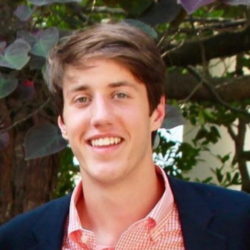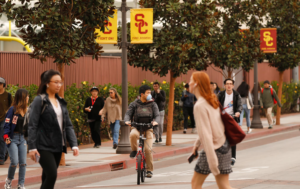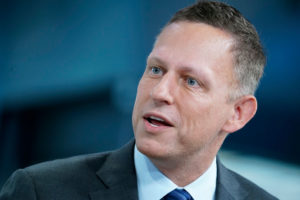COVID on Campus: College’s Risky Return

As a college student at the University of North Carolina, it’s quite comical to watch universities across the country roll out their grandiose plans for a safe return to campus this fall. Each strategy — rife with promises of a “new normal” — depicts a sterile student population full of dutiful mask-wearing, strictly sanitized, and socially distanced scholars.
While this administrative idealism looks good on paper, it’s utterly delusional in practice. We’re talking about 20-year-olds here. Think back to the craziest thing you ever did at age 20. Now imagine telling that same ignorant tornado of youth to adhere diligently to strict social distancing policies that forbid large gatherings, embracing friends, or hooking up with peers.
I would like to believe that members of my generation are committed to eradicating this disease. But if we’ve learned anything from the stream of spring breakers who flooded Florida’s beaches as the virus washed ashore, it’s that young people are prone to place immediate gratification over just about anything else.
(Al Seib via Getty Images)
In my college town of Chapel Hill, NC, summer schoolers are already spending their summer in blissful pandemic-free bubbles. Emboldened by low mortality rates for adolescents, masses of college students find it easier to pretend the virus does not exist. Masks may be worn in grocery stores as performative displays of social efficacy, but later that night you’ll find the same person bare-faced, fraternizing with everyone in sight.
A recent NYT article revealed that anecdotal evidence of juvenile recklessness is backed by research. According to Dr. Laurence Steinberg, a psychology professor at Temple University, humans universally display the riskiest behavior between the ages of 20 to 24, regardless of culture or country. Allowing this population of risk-takers to return to campus — under the assumption they will obediently adhere to a complex set of health codes — seems like a recipe for disaster.
Despite their carelessness, it’s not students who will face the consequences of their actions: it’s their professors. The same statistics that embolden young people are the ones that will protect them: people ages 15-24 account for less than 0.15% of US COVID-19 deaths. On the other hand, college professors represent an older and more vulnerable population. By subjecting faculty to the campus petri dish, it’s now school administrators who seem unable to calculate risk.
This risky return can only be rationalized by factoring in the economic incentive driving many schools to reopen. While many students accepted the reality of online classes for the spring semester, another term of remote learning will likely lead to a breaking point. If the ability to temporarily unenroll is offered, expect a mass exodus of cash-strapped students opting out of thousand-dollar Zoom lectures. Without the allure of campus life to draw students back, many higher education institutions will suffer catastrophic yearly losses. With shrunken endowments, tuition refunds, and lack of athletic revenue, the University of Michigan speculates that it will lose over $1 billion by the end of the year.
And while numbers from large state schools like Michigan may be staggering, it’s smaller schools that are in the most danger. While more prestigious schools can fall back on donors with deep pockets, a Forbes article offers a grim prediction for lesser-known private schools that were struggling to make ends meet before COVID-19. By the time it’s all said and done, we could witness the death of up to 1,000 colleges nationwide.
All in all, university administrators face an unprecedented lose-lose situation. Bringing kids back may keep institutions afloat, but the potential public health costs are devastating. However, another semester online will only exacerbate the economic decay of smaller colleges and the communities that support them. It’s these questions that will keep education experts up at night.
Additional Reads
- The University Is Like a CD in the Streaming Age (Atlantic, $)
- ‘We Could Be Feeling This for the Next Decade’: Virus Hits College Towns (NYT, $)
- The Wild Card For An In-Person Fall: College Student Behavior (NPR)
- College Is Worth It, but Campus Isn’t (NYT, $)
- A Leadership Crisis on Campus (Atlantic, $)
- Screen Share: A College Teacher’s Zoom Journal (Wired, $)
- Georgia Universities Won’t Require Face Masks This Fall — And Faculty Are Livid (NPR)
...


